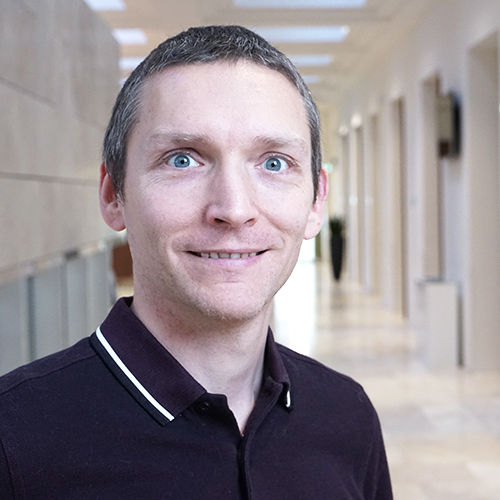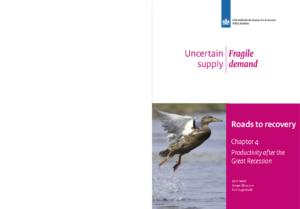Roads to recovery, chapter 4: Productivity after the Great Recession
- Dutch labour productivity declined 3.5% in just three quarters after the onset of the Great Recession and there has been no rapid recovery since.
- On average, banking crises are associated with large, permanent declines in productivity relative to the previous trend.
- There is no evidence that banking crises have a long-run effect on the growth rate of productivity.
The Great Recession has caused the level of labour productivity to be lower than it would have been without the banking crisis and the euro crisis. After the crisis, the growth rate of labour productivity can recover back to the long-run average of about 1.4% per year. Growth may be higher or lower, depending not only on how quickly new technologies are developed and implemented, but also on the recovery of the financial sector. There are also downside risks to the development of productivity in the next decade.
Financial crises are not ordinary recessions — they tend to cause large, permanent falls in the levels of both GDP and productivity. There is, however, no evidence that banking crises have a long-run effect on the growth rate of productivity. These conclusions have been demonstrated by a considerable literature that examines the effects of financial crises on macroeconomic performance.
Applying the lessons from the literature to the Netherlands suggests that the deviations from the pre-crisis trend might be largely permanent. For the Netherlands the average productivity growth in the twenty years preceding the start of the Great Recession was 1.4% and there is no hard evidence that productivity growth in the Netherlands will be lower in the long-run. There is, however, uncertainty about dating the end of the banking crisis and when the normal growth of productivity will resume. One important puzzle is why investment hasn’t been harder hit by a banking crisis, since it often requires external finance.
Downloads
Contacts



